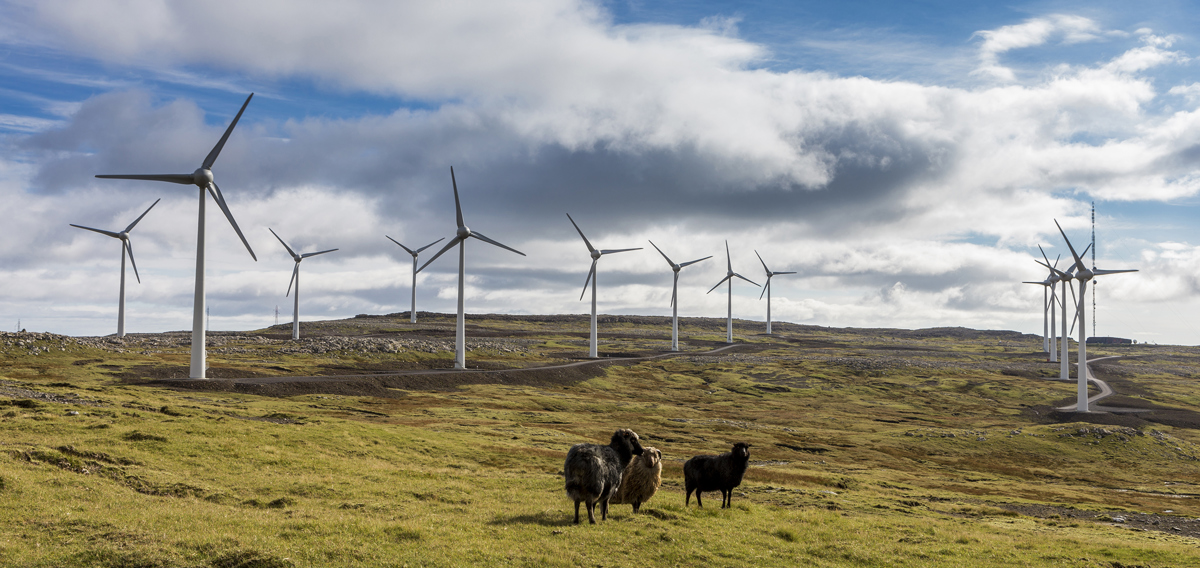Ensuring a stable grid with 100% unstable energy sources

How do we ensure a stable Faroese electrical grid when the majority of electricity production is derived from fluctuating renewable power sources?
Energy engineer and PhD researcher Helma Maria Tróndheim is working on a pioneering PhD project on the future stability of the land-based Faroese electrical system that will comprise of 100% green energy by 2030. Today, the green energy resources available are generally unstable sources of power.
The Faroe Islands are positioned isolated in the heart of the North Atlantic Ocean and, therefore, the country is unable to purchase electrical power from any neighbouring countries when our own sustainable power sources, e.g. wind and solar, do not produce sufficient power.
Other countries, such as those on the European continent, have the possibility to purchase power from their neighbours if needed. These countries, which are linked into a large communal grid, also sell power to each other. The Faroe Islands do not have this opportunity. Thus, the Faroese grid must secure its own reserves (back-up) to ensure a continual balance between consumption and production every second of every day.
According to Helma Maria Tróndheim it is not possible to conduct this type of research in other countries because comparable conditions simply do not exist. Therefore, other countries, in particular island communities, also have a great interest in our research.
The isolation of the Faroe Islands makes the topic of the PhD project very relevant: How do we ensure a stable Faroese electrical grid when the majority of the electricity production derives from fluctuating renewable power sources?
The aim of the project is not solely to determine how many power sources are needed, but also when and where it is most effective to make investments. In addition, we must consider the scenario that the best financial solution may not be technically feasible.
This research project is another concrete example of the comprehensive analysis that is the hallmark of the Green Energy Course toward the future charted by the people of the Faroe Islands.
